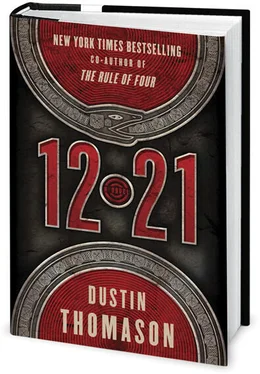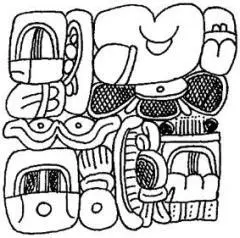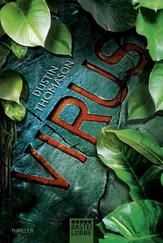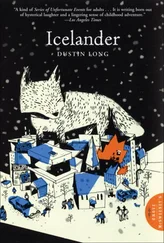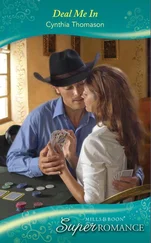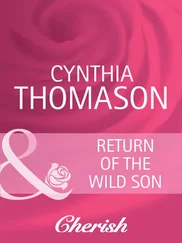She and Rolando had delicately removed the contents of Gutierrez’s box piece by piece, lifting and separating each fragment using sets of long tweezers and metal specula, then spreading them out onto glass plates sitting atop illuminated light tables. Some were as small as a postage stamp, but even these were heavy, dense fig-bark paper weighed down even more by the dust and moisture of a tomb.
They’d been at it four hours and had gotten through only the top of page one, but, staring down at the assembled fragments, Chel was pulled back to the former glory of her ancestors. The first words, already coming together, seemed to be an invocation of rain and the stars—a prayer—a magic carpet to another world.
“So I assume we’ll have to work on this at night?” Rolando asked.
Chel’s restorer was a six-foot-two, hundred-fifty-pound sliver of a man with a week’s worth of stubble.
“Sleep during the day,” she told him. “With apologies to your girl-friend.”
“I just hope she notices I’m gone. Maybe it’ll inject a little mystery into our relationship. And you? When will you sleep?”
“Whenever. There’s no one who’ll notice I’m gone.”
Rolando placed another fragment carefully onto the glass. Chel knew no one with a greater knack for handling delicate objects or with better instincts when it came to reconstructing fragile antiquities. She trusted him implicitly; he’d been a loyal member of her team longer than anyone else. She didn’t like putting him at risk, but she needed his help.
“You wish I’d called someone else?” Chel asked him.
“Hell no,” Rolando said. “I’m your one and only ladino , and I’m not going to let you squeeze me out of this bombshell.”
Ladino was slang for all seven million non-indigenous descendants of the Spanish living in Guatemala. All her life Chel had listened to her mother talking about how ladinos supported the army-sponsored genocide of the Maya and how they used the indígenas as scapegoats for their economic woes. But despite the tensions that still existed between the two groups, working so closely and for so long with Rolando had shifted her perspective. During the revolution, his family protested on behalf of the indigenous people. His father had even been arrested for it once before moving the family to America.
“I don’t see how this could be from any of the major ruins,” he said, tinkering with the edges until he’d jigsawed a match.
Chel agreed. The more than sixty known sites of classic-era Maya ruins in Guatemala, Honduras, Mexico, Belize, and El Salvador were packed with archaeologists, tourists, and locals year-round. Not even the most sophisticated looters could operate in those conditions, so Chel believed the book had to have been taken from a newly discovered site. Every year, satellites, helicopter tourists, and loggers stumbled across long-hidden architectural features in the jungle, and she guessed that the looter—likely a professional scout—had stumbled on the site and then returned with a crew.
“You think the looter could have discovered a lost city?” Rolando asked.
Chel shrugged. “If they did, every indígena in Guatemala will claim it as their own.”
So many Maya villages had oral histories that told of an incredible lost city where their ancestors had once lived. During the revolution, a cousin of Chel’s father even claimed to have found Kiaqix’s lost city, from which the Original Trio had supposedly fled. The reality was less sexy: Many Maya had always lived in small villages in the forest, and, for Chel’s people, claiming a connection to a lost city was like white Americans saying they had an ancestor on the Mayflower —easy (and desirable) to say, harder to prove.
“So I’m not asking again where the hell you got this…” Rolando said as he matched another fragment, “but, based on the iconography, this does look like it’s from the end of the classic. Maybe 800 to 925? It’s unbelievable.”
Chel said, “Hope the carbon dating agrees.”
Rolando put down his tweezers. “And I know we can’t tell anyone, but… there’s a lot of complicated syntax here. We could really use Victor on this. No one knows classic syntax better than he does.”
From the moment she saw the codex, Chel had wanted to call Victor Granning, but she was too afraid of how he might react. They hadn’t spoken in months; she had good reasons for avoiding him. “We’ll be just fine on our own,” she told Rolando.
“Okay,” he said. He knew better than to press. Granning was a sore spot. Chel loved her old mentor, but he was too much of a diehard. And a little nuts.
Trying to put Granning out of her mind, Chel studied the puzzle of “stacked” glyphs Rolando had started to assemble from the first page:
Mayan glyphs came in two basic varieties. They could be combinations of syllables strung together to approximate the sound of words (just like English or other alphabetical systems). But often they were more like Chinese, with each glyph or glyph combination symbolizing an object or idea. Once Chel had broken the blocks down and deciphered each component, using the established catalogs of one hundred fifty decoded syllables and the catalog of the eight hundred-plus known “picture” glyphs, she strung them into sentences.
Words like jäb were entirely familiar; it was the same word the modern Qu’iche used for rain. Some, like wulij , could only be loosely translated, because there was no corresponding word in English: to take down was the closest she could get, carrying none of the religious implications the word had in Mayan. Researchers had identifi ed about a hundred fifty glyphs that still hadn’t been deciphered, and not only did a few of these appear on the very first page of the codex, there were others Chel had never seen before. When the entire text was reconstructed, she suspected there would be dozens of new glyphs to analyze.
Three hours later, Chel’s legs had cramped, and her eyes were so dry and irritated that she had to replace her contacts with the glasses she hated. But finally they had a rough translation of the first glyph block:
Come rain is none, ____ of nourishment, ____ star’s half cycle. Harvest, take down fields of Kanuataba, raze ___ and trees, push out deer, birds, jaguar, land guardians. Rededication ____ tracts. Destroy hillsides, swarm insects, fed leaves soils are not. Have none, shelter, animals, butterflies, plants given by Holy Bearer for spirit lives. Bear no flesh, animals, cook us.
Yet for Chel, these literal words weren’t enough—a completed translation had to capture the essence of what the scribe was trying to convey.
Codices were written from the perspective of an omniscient narrator, and they were often very formal in tone. So she did her best to insert missing words from context and typical word pairings seen in the other books until they had a better rendering of the first paragraph:
No rain has come to give nourishment in a half cycle of the great star. The fields of Kanuataba have been harvested and destroyed, the trees and plants razed, and the deer and birds and jaguar guardians of the land have been pushed out. Farming tracts cannot be rededicated. Hillsides have been ruined, insects swarm, and soils are no longer fed by falling leaves. The animals and butterflies and plants given by the Holy Bearer have nowhere to go to continue their spirit lives. The animals bear no flesh for cooking.
Читать дальше
